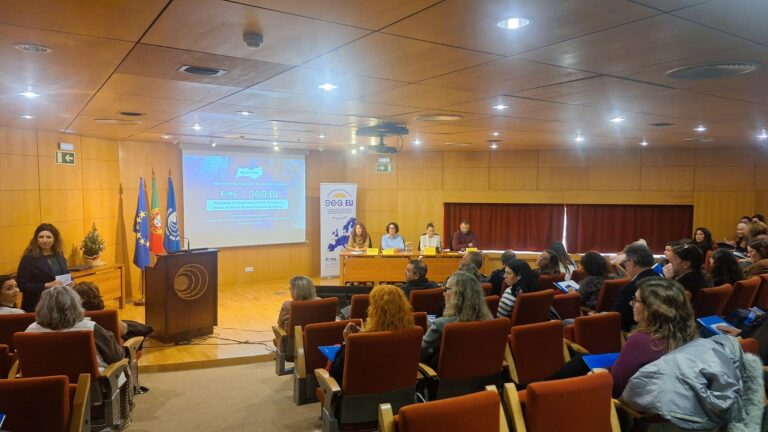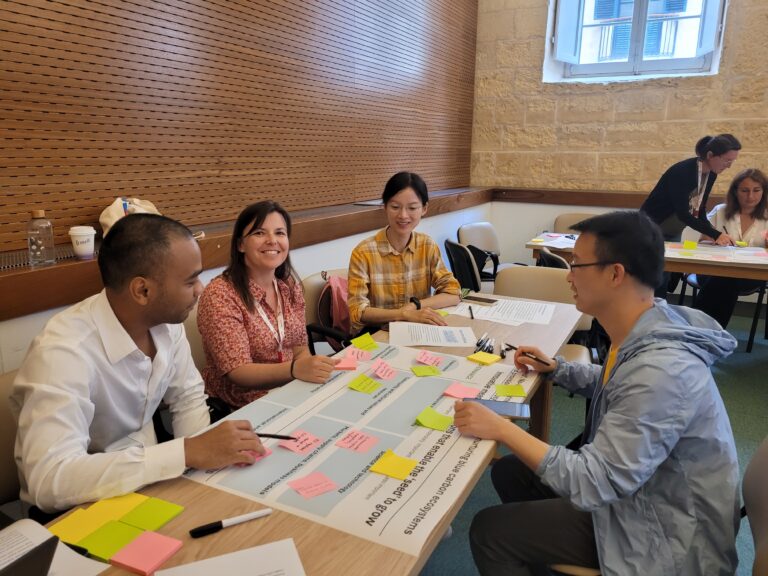On 9 June 2025, the European University of the Seas (SEA-EU) made a powerful contribution to the 2025 United Nations Ocean Conference by coordinating the virtual side event UNCO3 V80, titled “European University of the SEAS: Bridging Sustainability to the Global Coastal Areas of our Only Ocean”. The event was organised by Alexandra Teodósio, Vice-Rector for Internationalisation of SEA-EU and the University of Algarve and brought together over 60 participants from academia, civil society, and partner institutions spanning 18 countries across four continents.
The event provided a platform to exchange good practices, deepen international cooperation, and renew the collective commitment of the SEA-EU alliance to Sustainable Development Goal 14 – Life Below Water. It aligned with the overarching theme of the Conference: “Accelerating action and mobilising all actors to conserve and sustainably use the ocean”, and the core principle of the 2030 Agenda: “Leaving No One Behind”.
The session opened with welcoming remarks by Antonio Garofalo, Rector of the University of Naples Parthenope and President of the SEA-EU Alliance, followed by Marcela Iglesias, General Coordinator of SEA-EU (University of Cádiz), who presented an overview of the alliance’s evolution and mission.
The event also featured key academic and strategic developments within SEA-EU. Fernando Pérez (University of Cádiz) introduced SEA-EU’s accredited joint European degrees, now open for applications for the 2025–26 academic year. A presentation by Ángeles Jiménez (University of Cádiz) and Merica Slišković (University of Split) followed, highlighting the role of the SEA-EU Observatories in supporting evidence-based decision-making and long-term engagement in coastal sustainability.
A central moment of the event was the SEA-EU Future Leadership Forum (FLF), showcasing the voices of early-career researchers and institutional representatives from the nine SEA-EU universities, alongside nine global partner institutions. The session, introduced by Vito Pascazio (University of Naples Parthenope), highlighted a broad range of efforts aligned with SDG 14. Presentations by participants from institutions including the Universities of Cádiz, Western Brittany, Kiel, Gdańsk, Split, Malta, Naples Parthenope, Algarve and Nord, reflected SEA-EU’s shared commitment to sustainability and innovation across diverse geographic and cultural contexts.
Complementing these were valuable contributions from SEA-EU’s global partner institutions: the National University of Odesa (Ukraine), University of Namibe (Angola), Takoradi Technical University (Ghana), Atlantic Technical University (Cabo Verde), Eduardo Mondlane University (Mozambique), State University of Amapá, the Federal University of Western Pará (Brazil), Université du Québec à Rimouski (Canada), and the University of San Pedro (Ivory Coast). These exchanges enriched the discussion with broader international perspectives and deepened the alliance’s commitment to inclusive global cooperation.
The session also addressed the role of science communication in supporting epistemic equity. Manuel Célio Conceição (University of Algarve) underscored the importance of including diverse knowledge systems and voices in global scientific discourse, especially within international academic collaborations such as SEA-EU.
The event culminated in the formal presentation of the SEA-EU Voluntary Ocean Commitment, to be recorded on the official United Nations platform. This act symbolised the alliance’s long-term dedication to sustainability, inclusive partnerships, and the transformative potential of education, research, and innovation in addressing pressing ocean-related challenges.
By hosting this side event at the UN Ocean Conference, SEA-EU once again demonstrated its strategic vision: to connect higher education, research, and international cooperation in a joint effort to protect the ocean, empower communities, and actively contribute to the 2030 Agenda for Sustainable Development.


